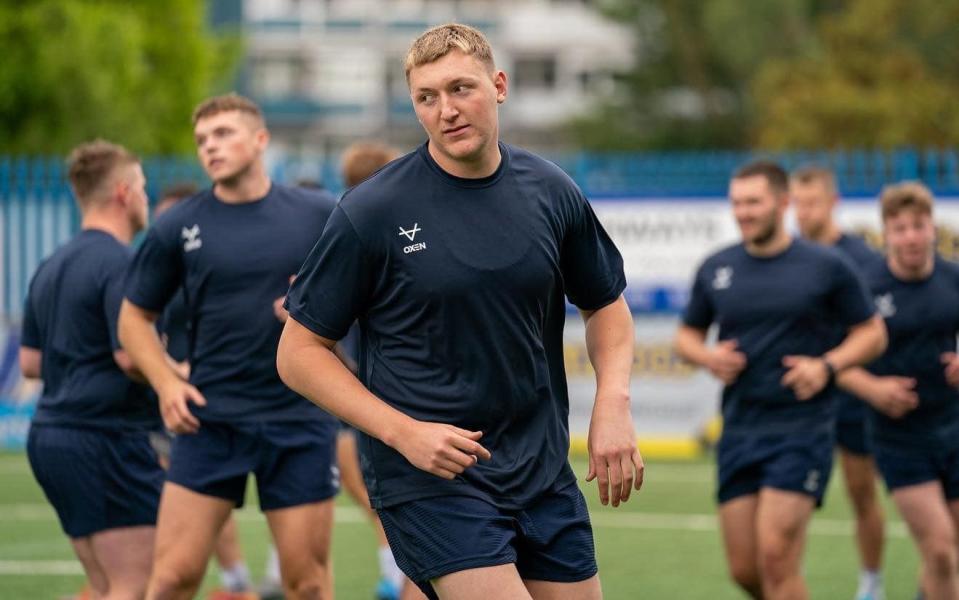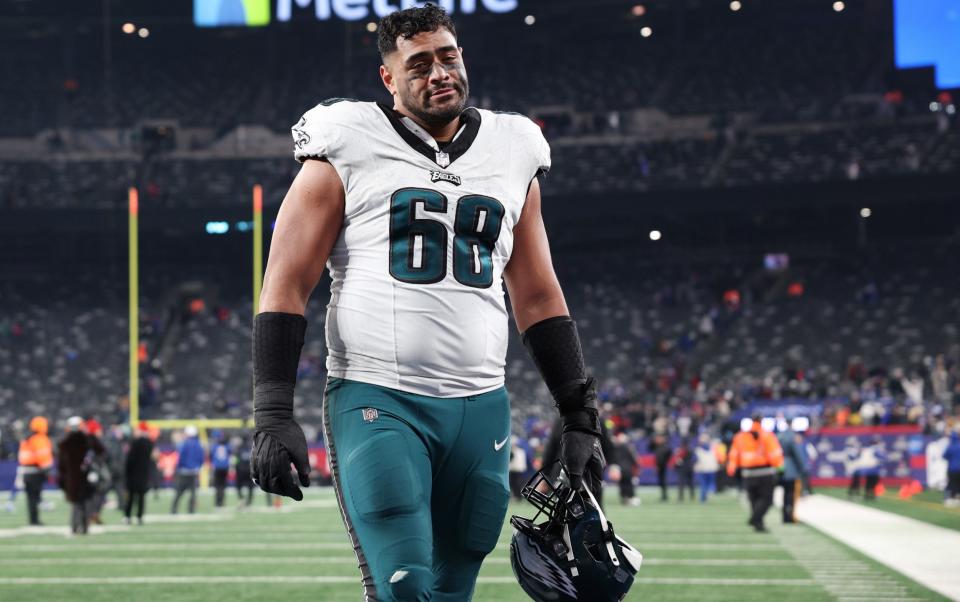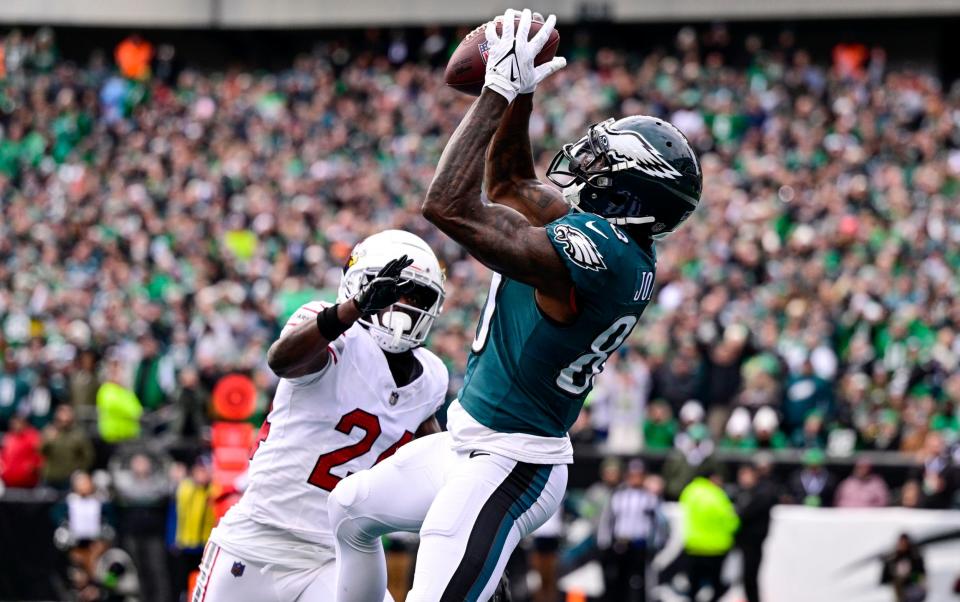‘Planet Theory’ and ‘lonely’ moments: What lies ahead for Louis Rees-Zammit and rugby’s NFL hopefuls

Louis Rees-Zammit’s defection to American football on the eve of the Six Nations invaded the public consciousness in a way that rugby union rarely does. It caused excited questions to ping around mobile phones. Why was the Wales wing, already a British and Irish Lion and a burgeoning star of the sport at 22, giving it up for a spot on the NFL’s International Player Pathway? Can he prosper Stateside as a running back or wide receiver?
Many will follow the progress of Rees-Zammit closely. Rugby aficionados will also be intrigued by the exploits of Harry Mallinder and Darragh Leader. Both represented their respective countries, England and Ireland, at under-20 level and are aspiring to become kickers or punters. Two less familiar rugby players, though, may have better shots of cracking the NFL. George Smith has joined the IPP from Coventry, having been recruited by the Championship outfit two seasons ago from Old Redcliffians, the fifth-tier Bristol outfit where Ellis Genge learnt the game.

Travis Clayton is another IPP inductee. He was with Basingstoke in Counties 2 Hampshire, at level eight of the pyramid (watch Instagram post below).
Both Smith and Clayton are large men. The former, a lock, stands 6ft 9in and weighs around 19st 11lb. Clayton, a pacey wing, is a shade under 6ft 7in and weighs 20st 12lb. They will be learning how to protect quarterbacks as offensive linemen. It was in this role, at left tackle, that Jordan Mailata, who played rugby league in Australia before becoming the IPP’s greatest success story, started Super Bowl LVII for Philadelphia Eagles.

Offensive linemen require immense power and mobility as well as intuitive knowledge of play patterns. Osi Umenyiora, a two-time Super Bowl champion with the New York Giants and now one of the IPP’s ambassadors, spells out the importance of raw materials.
“The offensive line is very difficult, but the one thing they do have is ‘Planet Theory’,” he explains. “There are only so many people above 6ft 6in walking the planet, right? Everybody else, there’s a lot of them. The big guys, there’s not that many.
“If you have a guy of that size and you can teach them the little intricacies and get him up to speed, they have a much better chance of success than anyone else. When you look at the IPP programme, who has been the most successful player we’ve had? Jordan Mailata, one of those Planet Theory guys.
“You see a guy of that size, you think, ‘OK, we’re going to train him’. Everyone else is a dime a dozen in the NFL.”
At 6ft 3in and 13st 12lb, Rees-Zammit is described as possessing an “average” build for an NFL wide receiver. Umenyiora believes that the former Gloucester flyer will “probably be faster” than most, too. There is a complimentary comparison to Julio Jones, selected to the Pro Bowl for six consecutive seasons between 2014 and 2019.
“There are a few wide-receivers that would come to mind with his frame and profile,” Umenyiora says of Rees-Zammit. “Maybe a Julio Jones? We’ll see how [Rees-Zammit] moves laterally and how quick he is in small areas. When he was tested, he had the speed and the measurables to be a good player.”

“I think he’s going to gain muscle and weight, for sure,” Umenyiora adds. “Rugby involved a lot more distance running. It’s constant. The NFL is stop-start; bursts. He’s probably going to gain muscle when he starts doing the explosive lifts we do. His body is going to change quite a bit, I’d assume. If he can maintain his speed while adding 10, 15, maybe even 20 pounds, I think he is going to be the ultimate athlete out there.”
Last weekend, Christian Wade warned Rees-Zammit that life in the IPP programme could be “lonely” and that things were sure to “get real, real fast”. Christian Scotland-Williamson, another rugby union convert who assumed an offensive position as a tight end, put on 10lb of lean muscle in five weeks as an IPP athlete and immersed himself in a 40-page playbook (see Instagram post below). Catching passes that arrive over one’s shoulder is just one skill that is largely alien to rugby players.
As Umenyiora outlines, the initial portion of the IPP programme is an “immersive“ 10-week training camp in Florida. Long days are punctuated by big meals, video analysis and theory meetings, on-pitch training, more big meals, weights, stretching, physiotherapy and massage. The class of 16 hopefuls will be honing their craft between 6.30am and 7.30pm. If that does not sound taxing enough, prospective kickers such as Mallinder and Leader must confront a unique sense of isolation. One miss can be enough to have a contract cut.
“They’re there but it can be like they’re not part of the team,” Umenyiora says with a laugh. “You might not see them during the week. They’re off on their own doing their own thing… but when the game is on the line, you better have a good one. They have to come through. A good one is extremely valuable.
“They’re usually strange people, kickers. But that comes with the territory, because you’re in the team but by yourself. There’s so much riding on your shoulders, so much pressure you have to deal with.”
Tyler Bass, the Buffalo Bills kicker who missed a 44-yard field on Sunday night as Kansas City Chiefs progressed past his team to the AFC Championship, has already deactivated his social media accounts amid reports of death threats. Umenyiora suggests that the punter position, charged with hoofing the ball for field position on fourth downs, would present “a much easier path to success” for Mallinder and Leader.
Playing just one snap in the NFL is an almighty achievement. To do so via the IPP requires tremendous mental and physical exertion, as well as extraordinary adaptability. Suddenly, plaudits in rugby matter very little. But having ‘Planet Theory’ on your side cannot hurt.

 Yahoo Sport
Yahoo Sport 



































































